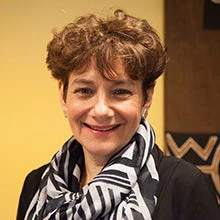
Less than one hour from the burgeoning, cosmopolitan boutiques and coffee shops of Lima’s chic San Isidro district, Carmen shares a one-room, patched-up wooden shack with her in-laws and her three small children in the outskirts of Ventanilla, an impoverished area north of Lima.
She is distraught, one side of her face paralyzed from stress as she faces the unimaginable: eviction from her humble dwelling and the possibility of tuberculosis striking again her two year old, and herself too.
As she sat on her bed, holding her youngest child and intently watching her sick boy play with his little sister on the dirt floor, the immense challenges of Carmen’s life seemed all pervasive.
She is probably unaware that she’s facing one of the most challenging, albeit little noticed, development issues in Latin America: the lack of ability to decide on choices to make her life better and the capability to implement her choices, or as it is known in development parlance, “agency”.
Even though experts from health group IFHAD have been supporting Carmen regularly, getting tested for TB, enrolling in a treatment program, improving her family’s nutrition and living conditions, and finding a new home to live, seem like insurmountable hurdles to her.
For thousands of women across Latin America and the Caribbean, particularly those facing multiple deprivations like Carmen, these challenges are even harder to overcome. Many have reached a point where they don’t necessarily believe they can aspire to a better life, have access to information and services needed to improve their situation, or believe sufficiently that their health is an important asset to be preserved. (Recent research suggests that the reason women test themselves less often for TB in Ventanilla, stems from an inherent belief among patients and even health care workers that the health of females is less valuable than that of males).
No wonder “agency” –defined as the ability to make choices to achieve desired outcomes- is one of the three basic domains of gender equality along with assets and economic opportunities, according to the World Development Report 2012. In Carmen’s case, “agency” would be her ability to map out and implement a plan of action to improve her life and her family’s wellbeing –a role that is currently played by the folks from IFHAD.
“Agency” matters in and of itself as a basic freedom to live a life of one’s choosing, but it also is important for other development outcomes. In a joint research paper Karen Macours and Renos Vakis provide empirical evidence of the positive effect of increased aspirations on investment behavior. In their randomized experiment, women whose aspirations increased through communication with successful and motivated female leaders were more likely to make higher human capital investments.
“Agency” is an essential ingredient if women in Latin America are to take advantage of their expanded assets and economic opportunities to make choices consistent with their aspirations and desires. Yet, despite its essential importance, many of us struggle to understand what exactly is “agency” and how to promote it. We need to identify practical ways to develop this notion, especially if some of the more intransient and less obvious obstacles for gender inequality are to be addressed in Latin America. We need to start treating “agency” like any other asset (such as good health or access to credit) that can be nurtured and developed through good policies and programs.
It is not a hard, tangible asset like schooling, but it can be measured through non-cognitive outcomes and manifestations of weak “agency” -such as gender-based violence or teenage pregnancy, and its impacts on other gender-related outcomes, such as gender wage gaps and good health.
We are collaborating with IFHAD to measure the impact of their actions on non-cognitive and income generation outcomes for women such as Carmen. Also, in Peru and Brazil, we are exploring howconditional cash payments to women can affect gender-based violence. In Brazil, we are also assessing how the implementation of labor regulations affect wage gaps and job choices, as well as the impact of legislative measures to tackle gender-based violence.
While “agency” may not be a sufficient condition for sustained poverty reduction and gender equality, it is most likely a necessary one.
As we were leaving Carmen’s home, her daughter plopped herself on the bed to watch TV, switching the wires and handling the remote control with impressive expertise characteristic of many four year olds anywhere. I wondered about the tremendous power and lure of TV and whether it was, for all effects and purposes, substituting “agency” by providing role models for a young girl facing very contrasting challenges.
More importantly, I wondered whether we are doing enough to help her have the full range of assets she would need to get a better future.


Join the Conversation